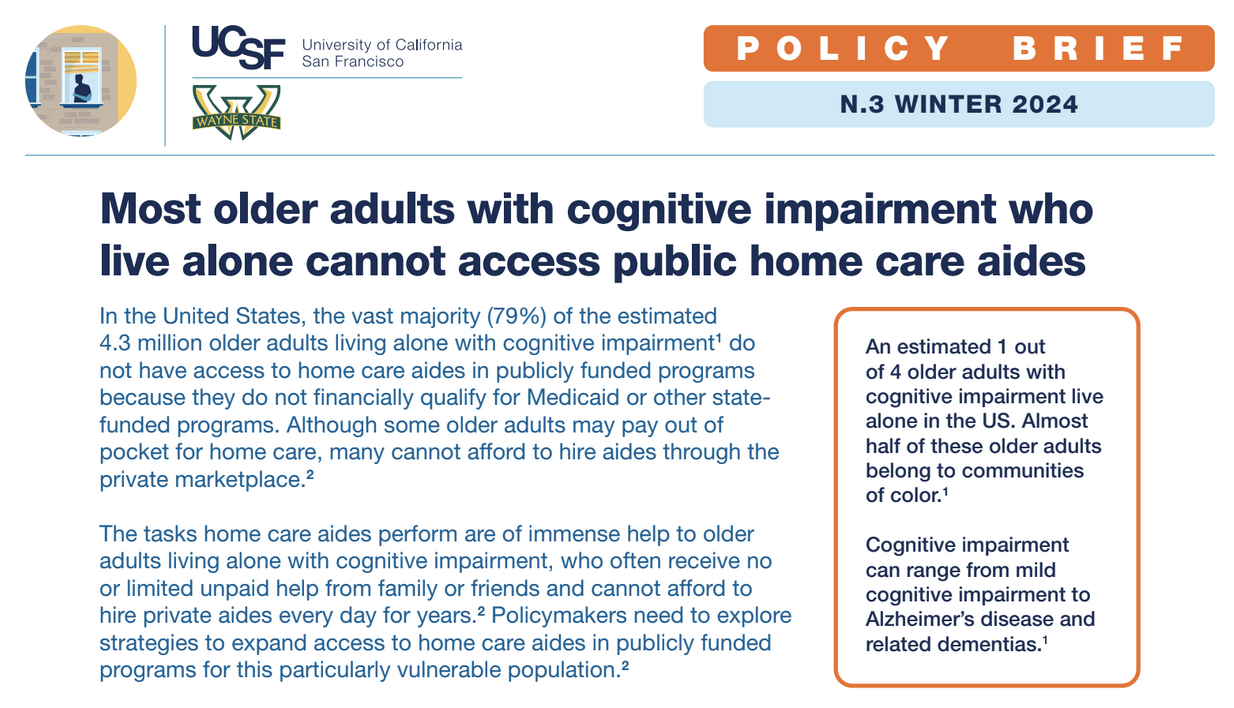Living Alone with Cognitive Impairment
The Living Alone with Cognitive Impairment (LACI) Project has the goal to enhance the well-being of people living alone with cognitive impairment in the United States, as well as worldwide. Our initiatives are meant to:
- Spotlight people living alone with cognitive impairment, most of whom are older adults
- Catalyze rigorous interdisciplinary, mixed-method, and international research to illuminate challenges, as well as best practices related to living alone with cognitive impairment
- Develop public policy recommendations
Our briefs offer key information about the estimated 4.3 million older adults living alone with cognitive impairment in the United States and recommendations on ensuring that the diagnosis of cognitive impairment empowers them. All briefs can be found here, on the "Policy Briefs" page of our website. Stay tuned for future briefs!
In the United States it is estimated that 4.3 million older adults live alone with cognitive impairment, which represents 25% of older adults living with cognitive impairment. Cognitive impairment can range from mild cognitive impairment to dementia.¹
“I was glad that I was diagnosed, because I was feeling crazy. And when I say I’m feeling crazy, things were happening to me that I couldn’t understand, like I got on the bus, and I forgot where I was going.”
—Woman living alone diagnosed with dementia

